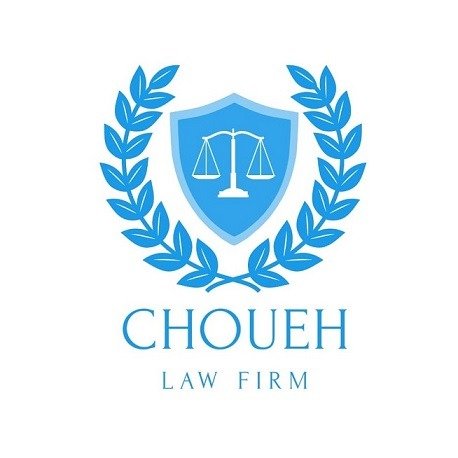Best General Litigation Lawyers in Lebanon
Share your needs with us, get contacted by law firms.
Free. Takes 2 min.
Or refine your search by selecting a city:
List of the best lawyers in Lebanon
About Litigation Law in Lebanon
Litigation in Lebanon refers to the legal proceedings involved in resolving disputes between parties. It encompasses a wide range of legal issues, including commercial, civil, administrative, and criminal matters. The Lebanese legal system is largely influenced by the French civil law, and the litigation process involves several levels of courts, starting from conciliation and first-instance courts to higher levels such as the Court of Appeal and the Court of Cassation. In Lebanon, litigation can be a complex process due to the diverse legal landscape that includes multiple religious and secular courts.
Why You May Need a Lawyer
There are numerous situations where individuals or businesses may require legal assistance with litigation in Lebanon. These include but are not limited to:
- Disputes over commercial contracts or business partnerships.
- Real estate and property disputes.
- Employment issues, including wrongful termination or discrimination claims.
- Personal injuries or accidents resulting in legal claims.
- Family law disputes, such as divorce or custody battles.
- Criminal charges that require defense representation.
- Debt recovery and financial disputes.
Retaining a lawyer can help navigate the complexities of the legal framework, ensure that your rights are protected, and increase the likelihood of a favorable outcome.
Local Laws Overview
The Lebanese legal system consists of a mix of civil, religious, and customary laws, which can complicate litigation processes. Here are some key aspects:
- The judiciary is divided into several branches: civil, criminal, and administrative courts, with each handling specific types of cases.
- Lebanon recognizes religious courts for personal status and family law matters, including marriage, divorce, and inheritance.
- The commercial court deals with business and commercial disputes, heavily influenced by the French commercial code.
- The Code of Civil Procedure governs civil lawsuits, detailing the processes for filing claims and appeals.
- Alternative Dispute Resolution (ADR) methods, such as arbitration and mediation, are increasingly being used to avoid lengthy litigation.
Frequently Asked Questions
What is the first step in starting a litigation case in Lebanon?
The first step is to file a lawsuit, usually in the court that has jurisdiction over the type of case you are presenting. Gathering all necessary documents and evidence is crucial at this stage.
How long does the litigation process usually take?
The duration of litigation in Lebanon can vary depending on the complexity of the case, the court's schedule, and the parties' cooperation. Simple cases may resolve in a few months, while complex cases can take years.
Can foreigners file lawsuits in Lebanon?
Yes, foreigners can file lawsuits in Lebanon. However, it is advisable to seek legal representation familiar with Lebanese laws to navigate the process effectively.
What are the fees associated with litigation in Lebanon?
Legal costs in Lebanon include court fees, lawyer fees, and potential expert fees. These vary depending on the case's complexity and the lawyer's experience.
Is it mandatory to obtain a lawyer for litigation in Lebanon?
While individuals can represent themselves in court, it is highly recommended to hire a lawyer due to the complexity of legal procedures and the strategic expertise required.
What role does mediation play in Lebanese litigation?
Mediation serves as an alternative dispute resolution method in Lebanon, helping parties reach a settlement without undergoing full-scale litigation.
Can a litigation outcome be appealed?
Yes, parties can appeal a court decision in Lebanon if they believe there has been a legal error. The appeal must be submitted within a specific period following the original verdict.
How does the Lebanese court system handle family law matters?
Family law issues are often referred to religious courts in Lebanon, which govern based on the religious laws applicable to the parties involved.
What happens if a party does not comply with a court judgment?
If a party fails to comply with a court judgment, enforcement proceedings may be initiated, which can include asset seizure or other legal measures to ensure compliance.
Are there any time limitations for filing a lawsuit?
Yes, Lebanese law prescribes statutes of limitations for different types of cases. It is crucial to be aware of these time limits to ensure your legal rights are preserved.
Additional Resources
For further assistance in litigation matters, consider reaching out to the following resources:
- The Lebanese Bar Association, which can provide referrals to licensed lawyers.
- The Ministry of Justice in Lebanon for guidance on legal procedures.
- Legal aid organizations that may offer pro bono services for qualifying individuals.
- Mediation and arbitration centers that can offer alternative dispute resolution services.
Next Steps
If you require legal assistance in litigation, consider the following steps:
- Identify the nature of your legal issue to determine which type of lawyer you need.
- Consult with a qualified lawyer to understand your legal rights and options.
- Gather all relevant documentation and evidence related to your case.
- Consider alternative dispute resolution options to potentially save time and resources.
- Prepare for the litigation process by understanding the court procedures and potential timelines.
Seeking professional legal assistance is crucial in navigating the complexities of litigation in Lebanon. A knowledgeable lawyer can provide guidance tailored to your specific situation, increasing the chances of achieving a favorable outcome.
Lawzana helps you find the best lawyers and law firms in Lebanon through a curated and pre-screened list of qualified legal professionals. Our platform offers rankings and detailed profiles of attorneys and law firms, allowing you to compare based on practice areas, including General Litigation, experience, and client feedback.
Each profile includes a description of the firm's areas of practice, client reviews, team members and partners, year of establishment, spoken languages, office locations, contact information, social media presence, and any published articles or resources. Most firms on our platform speak English and are experienced in both local and international legal matters.
Get a quote from top-rated law firms in Lebanon — quickly, securely, and without unnecessary hassle.
Disclaimer:
The information provided on this page is for general informational purposes only and does not constitute legal advice. While we strive to ensure the accuracy and relevance of the content, legal information may change over time, and interpretations of the law can vary. You should always consult with a qualified legal professional for advice specific to your situation.
We disclaim all liability for actions taken or not taken based on the content of this page. If you believe any information is incorrect or outdated, please contact us, and we will review and update it where appropriate.
Browse general litigation law firms by city in Lebanon
Refine your search by selecting a city.









